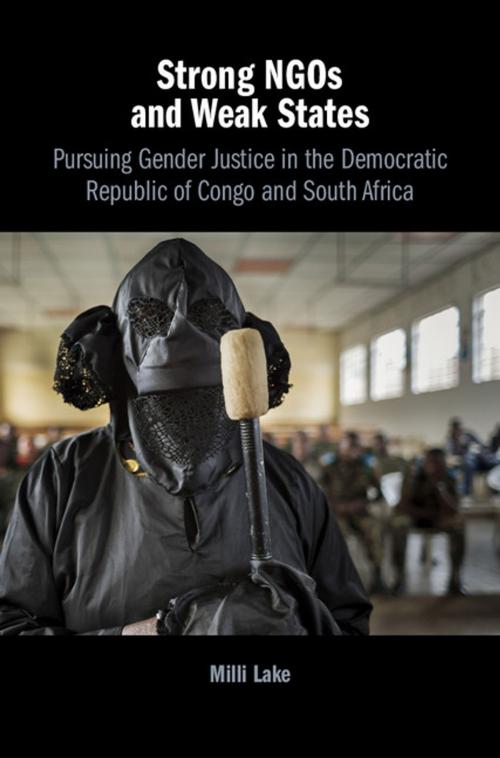Strong NGOs and Weak States
Pursuing Gender Justice in the Democratic Republic of Congo and South Africa
Nonfiction, Social & Cultural Studies, Political Science, International, International Relations, Reference & Language, Law| Author: | Milli May Lake | ISBN: | 9781108317917 |
| Publisher: | Cambridge University Press | Publication: | April 30, 2018 |
| Imprint: | Cambridge University Press | Language: | English |
| Author: | Milli May Lake |
| ISBN: | 9781108317917 |
| Publisher: | Cambridge University Press |
| Publication: | April 30, 2018 |
| Imprint: | Cambridge University Press |
| Language: | English |
Over the past decade, DR Congo and South Africa have attracted global attention for high rates of sexual and gender-based violence. Why is it that courts in eastern DR Congo have offered a robust judicial response, prioritizing gender crimes despite considerable logistical challenges, whilst courts in South Africa, home to a far stronger legal infrastructure and human rights record, have failed to provide justice to victims of similar crimes? Lake shows that state fragility in DR Congo has created openings for human rights NGOs to influence legal processes in ways that have proved impossible in countries like South Africa, where the state is stronger. Yet exploiting opportunities presented by state fragility to pursue narrow human rights goals invites a host of new challenges. Strong NGOs and Weak States documents the promises and pitfalls of human rights and rule of law advocacy undertaken by NGOs in strong and weak states alike.
Over the past decade, DR Congo and South Africa have attracted global attention for high rates of sexual and gender-based violence. Why is it that courts in eastern DR Congo have offered a robust judicial response, prioritizing gender crimes despite considerable logistical challenges, whilst courts in South Africa, home to a far stronger legal infrastructure and human rights record, have failed to provide justice to victims of similar crimes? Lake shows that state fragility in DR Congo has created openings for human rights NGOs to influence legal processes in ways that have proved impossible in countries like South Africa, where the state is stronger. Yet exploiting opportunities presented by state fragility to pursue narrow human rights goals invites a host of new challenges. Strong NGOs and Weak States documents the promises and pitfalls of human rights and rule of law advocacy undertaken by NGOs in strong and weak states alike.















